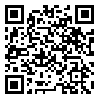Volume 77, Issue 1 (April 2019)
Tehran Univ Med J 2019, 77(1): 54-62 |
Back to browse issues page
Download citation:
BibTeX | RIS | EndNote | Medlars | ProCite | Reference Manager | RefWorks
Send citation to:



BibTeX | RIS | EndNote | Medlars | ProCite | Reference Manager | RefWorks
Send citation to:
Esfandiari Z, Marasi M R, Estaki F, Sanati V, Panahi E, Akbari N, et al . Influence of education on knowledge, attitude and practices of students of Isfahan University of Medical Sciences to traffic light inserted on food labeling. Tehran Univ Med J 2019; 77 (1) :54-62
URL: http://tumj.tums.ac.ir/article-1-9568-en.html
URL: http://tumj.tums.ac.ir/article-1-9568-en.html
Zahra Esfandiari * 
 1, Mohammad Reza Marasi2
1, Mohammad Reza Marasi2 
 , Fatemeh Estaki3
, Fatemeh Estaki3 
 , Vahid Sanati3
, Vahid Sanati3 
 , Elnaz Panahi3
, Elnaz Panahi3 
 , Nader Akbari3
, Nader Akbari3 
 , Roya Alsadat Madani3
, Roya Alsadat Madani3 
 , Jila Mosberian Tanha4
, Jila Mosberian Tanha4 


 1, Mohammad Reza Marasi2
1, Mohammad Reza Marasi2 
 , Fatemeh Estaki3
, Fatemeh Estaki3 
 , Vahid Sanati3
, Vahid Sanati3 
 , Elnaz Panahi3
, Elnaz Panahi3 
 , Nader Akbari3
, Nader Akbari3 
 , Roya Alsadat Madani3
, Roya Alsadat Madani3 
 , Jila Mosberian Tanha4
, Jila Mosberian Tanha4 

1- Department of Food Science and Technology, School of Nutrition and Food Science, Isfahan University of Medical Sciences, Isfahan, Iran. Department of Research and Development, Vice Chancellery for Food and Drug, Isfahan University of Medical Sciences, Isfahan, Iran. , research_esfandiary@mui.ac.ir
2- Department of Epidemiology and Biostatistics, School of Health, Isfahan University of Medical Sciences, Isfahan, Iran.
3- Department of Food Science and Technology, School of Nutrition and Food Science, Isfahan University of Medical Sciences, Isfahan, Iran.
4- MD Anderson Cancer Research Center, University of Texas, Houston, Texas, United States.
2- Department of Epidemiology and Biostatistics, School of Health, Isfahan University of Medical Sciences, Isfahan, Iran.
3- Department of Food Science and Technology, School of Nutrition and Food Science, Isfahan University of Medical Sciences, Isfahan, Iran.
4- MD Anderson Cancer Research Center, University of Texas, Houston, Texas, United States.
Abstract: (3020 Views)
Background: Nutrition education and introduction of procedures for choosing healthier food have an important role to reduce the rate of non-communicable diseases. It was shown the amount of risk factors of non-communicable diseases such as energy, salt, sugar, fat and trans fatty acid on the traffic light of food labelling. The status of risk is presented through three colors of red, yellow and green that are the signs of risk, precautious and safe use of food. The object of this study was to evaluate the influence of education on the knowledge, attitude and practices of Isfahan University of Medical Sciences students to the traffic light on food labeling.
Methods: This project was an empirical study performed by random sampling of 379 students of nine schools in Isfahan University of Medical Sciences from January 2017 to March 2018. The knowledge, attitude and practices of students toward the traffic light were assessed by self-administered and structured questionnaire. Education was performed face to face with the usage of pamphlet. In the period of three to six months, questionnaires were refilled out by students to determine knowledge, attitude and practice. Descriptive statistics were calculated using SPSS in mean± SD. Paired t-test was performed to assess the influence of education in total score of knowledge, attitudes and practices in test-retest. P value was considered less than 0.05 as statistically significant.
Results: Before education, the average of scores for knowledge, attitude and practice was 1.12±0.84, 14.44±4 and 2.25±2.2, respectively. Afterwards, the scores were increased to 11.72±0.75, 18.67±3.18 and 17.69±4.7 after education. Significant difference was observed in the scores of knowledge, attitude and practice of students before and after education (P<0.05).
Conclusion: Education of traffic light had a significant role in the improvement of knowledge, attitude and to some extent of practice of students in selection of healthier food.
Methods: This project was an empirical study performed by random sampling of 379 students of nine schools in Isfahan University of Medical Sciences from January 2017 to March 2018. The knowledge, attitude and practices of students toward the traffic light were assessed by self-administered and structured questionnaire. Education was performed face to face with the usage of pamphlet. In the period of three to six months, questionnaires were refilled out by students to determine knowledge, attitude and practice. Descriptive statistics were calculated using SPSS in mean± SD. Paired t-test was performed to assess the influence of education in total score of knowledge, attitudes and practices in test-retest. P value was considered less than 0.05 as statistically significant.
Results: Before education, the average of scores for knowledge, attitude and practice was 1.12±0.84, 14.44±4 and 2.25±2.2, respectively. Afterwards, the scores were increased to 11.72±0.75, 18.67±3.18 and 17.69±4.7 after education. Significant difference was observed in the scores of knowledge, attitude and practice of students before and after education (P<0.05).
Conclusion: Education of traffic light had a significant role in the improvement of knowledge, attitude and to some extent of practice of students in selection of healthier food.
Type of Study: Original Article |
Send email to the article author
| Rights and permissions | |
 |
This work is licensed under a Creative Commons Attribution-NonCommercial 4.0 International License. |



